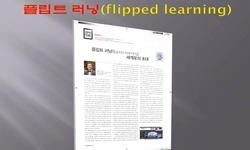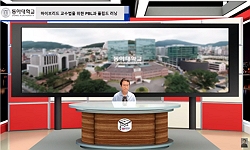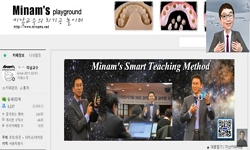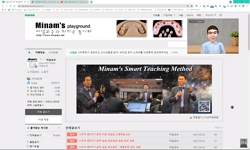In response to recent social demands for competency-based learning, flipped learning in college education is becoming a popular innovative teaching method to enhance interaction with students, professors and colleagues. Though flipped learning is the ...
http://chineseinput.net/에서 pinyin(병음)방식으로 중국어를 변환할 수 있습니다.
변환된 중국어를 복사하여 사용하시면 됩니다.
- 中文 을 입력하시려면 zhongwen을 입력하시고 space를누르시면됩니다.
- 北京 을 입력하시려면 beijing을 입력하시고 space를 누르시면 됩니다.

대학 플립드러닝에서 학업적 자기효능감, 교수실재감, 인지된 학업성취도 간의 구조관계 = A Structural Relationship between Undergraduates’ Academic Self-efficacy, Teaching Presence and Perceived Achievement in Flipped Learning
한글로보기https://www.riss.kr/link?id=A105282017
- 저자
- 발행기관
- 학술지명
- 권호사항
-
발행연도
2018
-
작성언어
-
- 주제어
-
KDC
300
-
등재정보
KCI등재
-
자료형태
학술저널
-
수록면
177-199(23쪽)
-
KCI 피인용횟수
9
- DOI식별코드
- 제공처
- 소장기관
-
0
상세조회 -
0
다운로드
부가정보
다국어 초록 (Multilingual Abstract)
In response to recent social demands for competency-based learning, flipped learning in college education is becoming a popular innovative teaching method to enhance interaction with students, professors and colleagues. Though flipped learning is the teaching-learning model that converts traditional teaching method into learner-centered teaching method, there is lack of empirical research on the key factors of input and process influencing learning outcomes of flipped learning. Therefore, the effectiveness of flipped learning needs to be identified Integrally in terms of the inputs and processes. Thus, this study selected academic self-efficacy as an input variable and teaching presence as a process variable, and verified a structural relationship among academic self-efficacy, teaching presence, and perceived achievement in flipped learning in higher education. 218 undergraduates at a university in South Korea completed surveys. The findings showed the significant direct relationships between academic self-efficacy, teaching presence, and perceived achievement. In detail, academic self-efficacy positively influenced teaching presence, teaching presence positively affected perceived achievement, and academic self-efficacy. Furthermore, academic self-efficacy indirectly effected perceived achievement through teaching presence. These findings imply that academic self-efficacy should get ready in advance before flipped learning and teaching presence should be cultivated through a professor’s role of designing the course, lecturing the learning contents, and facilitating students' learning process. Based on these results, the author suggested the practical strategies for enhancing academic self-efficacy and teaching presence in flipped learning in higher education.
참고문헌 (Reference)
1 박남수, "혼합형 초등수학 학습성과에 영향을 미치는 자기결정성 학습동기와 교수실재감의 관계규명" 이화여자대학교 교육대학원 2012
2 서미옥, "혼합연구를 통해 본 플립드 러닝의 영향과 인식" 한국교육공학회 32 (32): 535-570, 2016
3 김보경, "협동학습기반 중학교 진로수업 학습성과에 대한 교수실재감과 상호작용 지각의 예측력 규명" 학습자중심교과교육학회 15 (15): 243-267, 2015
4 이지혜, "학업적 자기효능감, 학습동기, 학습전략이 학업성취도에 미치는 영향: 교수자 중심 수업과 학습자 중심 수업 비교" 학습자중심교과교육학회 16 (16): 259-278, 2016
5 김아영, "학업적 자기효능감 척도개발 및 타당화연구" 39 (39): 95-123, 2001
6 임규연, "플립러닝에서 자기결정성 요인, 협력지향성, 인지적 실재감, 인지된 성취도의 관계" 한국교육정보미디어학회 22 (22): 439-462, 2016
7 박에스더, "플립러닝에 대한 메타 연구: 성공적 적용요건과 향후 연구방향" 한국데이터정보과학회 27 (27): 169-178, 2016
8 이희숙, "플립러닝 학습이 학습동기 및 학업성취도에 미치는 효과에 관한 연구" 한국컴퓨터교육학회 18 (18): 47-57, 2015
9 이민경, "플립러닝 이해와 실제" 교육과학사 2016
10 김종두, "플립러닝 수업에서 대학생들의 행동성향" 169-179, 2016
1 박남수, "혼합형 초등수학 학습성과에 영향을 미치는 자기결정성 학습동기와 교수실재감의 관계규명" 이화여자대학교 교육대학원 2012
2 서미옥, "혼합연구를 통해 본 플립드 러닝의 영향과 인식" 한국교육공학회 32 (32): 535-570, 2016
3 김보경, "협동학습기반 중학교 진로수업 학습성과에 대한 교수실재감과 상호작용 지각의 예측력 규명" 학습자중심교과교육학회 15 (15): 243-267, 2015
4 이지혜, "학업적 자기효능감, 학습동기, 학습전략이 학업성취도에 미치는 영향: 교수자 중심 수업과 학습자 중심 수업 비교" 학습자중심교과교육학회 16 (16): 259-278, 2016
5 김아영, "학업적 자기효능감 척도개발 및 타당화연구" 39 (39): 95-123, 2001
6 임규연, "플립러닝에서 자기결정성 요인, 협력지향성, 인지적 실재감, 인지된 성취도의 관계" 한국교육정보미디어학회 22 (22): 439-462, 2016
7 박에스더, "플립러닝에 대한 메타 연구: 성공적 적용요건과 향후 연구방향" 한국데이터정보과학회 27 (27): 169-178, 2016
8 이희숙, "플립러닝 학습이 학습동기 및 학업성취도에 미치는 효과에 관한 연구" 한국컴퓨터교육학회 18 (18): 47-57, 2015
9 이민경, "플립러닝 이해와 실제" 교육과학사 2016
10 김종두, "플립러닝 수업에서 대학생들의 행동성향" 169-179, 2016
11 문지원, "플립드러닝을 적용한 영어 수업이 학업성취도와 영어효능감에 미치는 효과" 교육종합연구소 14 (14): 127-152, 2016
12 김시원, "플립드 러닝(Flipped learning) 환경에서 자기조절, 교수실재감, 인지된 상호작용과 학습성과와의 관계: 인지된 상호작용의 매개효과를 중심으로" 한국교육방법학회 28 (28): 743-766, 2016
13 이동엽, "플립드 러닝(Flipped Learning) 교수학습 설계모형 탐구" 한국디지털정책학회 11 (11): 83-92, 2013
14 정영숙, "플립드 러닝 기반 ‘컴퓨터 운영체제’ 수업에서의 학업몰입 증대 여부에 따른 학습과정 및 학업성과 비교" 학습자중심교과교육학회 17 (17): 537-561, 2017
15 간진숙, "프로젝트기반 학습의 플립러닝 수업 모형이 자기주도적 학습능력과 셀프리더십 및 학습역량에 미치는 영향" 한국수산해양교육학회 28 (28): 1478-1491, 2016
16 은주희, "평생교육프로그램에서 참여동기, 교수실재감, 학습성과 간의 관계" 한국교육방법학회 25 (25): 479-499, 2013
17 최선아, "초등영어 교과에서 효과적인 플립러닝 실행을 위한 기초조사 연구" 중앙대학교 2017
18 김아영, "자아효능감과 학습동기" 한국교육방법학회 16 (16): 1-38, 2004
19 김세련, "온라인 수업환경에서 학습자 참여와 학습만족도 및 인지된 학업성취도에 대한 학습자의 이러닝 준비도와 교수실재감의 효과에 관한 연구" 고려대학교 대학원 2013
20 김민정, "설계기반 연구를 통한 플립러닝 사전 동영상 자기주도 예습 지원 교수-학습전략 개발" 한국교육정보미디어학회 23 (23): 789-814, 2017
21 허희옥, "사이버학습환경에서 '교육적 경험'을 지원하는 교수자의 역할 모형 설계" 한국교육정보미디어학회 13 (13): 195-223, 2007
22 홍효정, "블렌디드 러닝(Blended Learning)을 위한 대학 교수자의 교수역량 도출" 한국교육공학회 32 (32): 391-425, 2016
23 윤정은, "반전학습(flipped learning)을 적용한 수학 수업에서 학생들의 참여 요인 탐색" 한국수학교육학회 55 (55): 299-316, 2016
24 김은경, "데이터베이스 교과목에서 플립러닝 적용 사례" 한국정보통신학회 20 (20): 847-856, 2016
25 김남익, "대학에서의 거꾸로 학습(Flipped learning) 사례 설계 및 효과성 연구: 학습동기와 자아효능감을 중심으로" 한국교육공학회 30 (30): 467-492, 2014
26 김세영, "대학수업에서 적용된 플립러닝의 만족도에 대한 학업적 자기조절, 자기결정성 동기, 몰입의 예측력" 학습자중심교과교육학회 17 (17): 91-109, 2017
27 임상훈, "대학생들은 플립드러닝수업을 통해 어떤 경험을 하는가?" 한국교육정보미디어학회 22 (22): 777-803, 2016
28 변호승, "대학교 역전학습에서 예비교사들의 학습참여에 대한 질적 연구" 한국교육공학회 32 (32): 743-769, 2016
29 장은정, "대학 플립드 러닝 수업에 대한 전문대학생의 온라인-오프라인 학습 인식 분석" 한국교육정보미디어학회 23 (23): 891-917, 2017
30 한형종, "대학 역전학습 온·오프라인 연계 설계전략에 관한 연구" 한국교육공학회 31 (31): 1-38, 2015
31 배상훈, "대학 교양기초교육 운영 모델 개발" 한국교양교육학회 11 (11): 407-442, 2017
32 김진희, "대학 Flipped Classroom 환경에서 교수실재감과 학습자-교수자 상호작용이 인지된 학업성취도에 미치는 영향" 한국교육정보미디어학회 22 (22): 733-753, 2016
33 문수백, "구조방정식모델링의 이해와 적용 with AMOS 17.0" 학지사 2009
34 김계수, "구조방정식 모형분석" SPSS 아카데미 2010
35 하영자, "공무원의 동기변인과 자기조절학습 수행력을 이용한 온라인 직무교육의 만족도, 성취도 및 직무몰입 수준의 예측" 이화여자대학교 대학원 2005
36 최정빈, "공과대학의 Flipped Learning 교수학습 모형 개발 및 교과운영사례" 한국공학교육학회 18 (18): 77-88, 2015
37 김민경, "거꾸로 교실수업이 중학교 영어 학습자의 학업성취도와 정의적 영역에 미치는 영향" 사범대학부속중등교육연구소 64 (64): 289-314, 2016
38 박경은, "‘선형대수학’ 플립드러닝(Flipped Learning) 강의 모델 설계 및 적용" 한국수학교육학회 30 (30): 1-22, 2016
39 고은현, "e-러닝 환경에서의 교수 실재감 측정도구 개발 연구" 고려대학교 대학원 2007
40 Sherer, M., "The self-efficacy scale: Construction and validation" 51 : 663-671, 1982
41 Milman, N. B., "The flipped classroom strategy: What is it and how can it best be used?" 9 (9): 85-87, 2012
42 Kim, M. K., "The experience of three flipped classrooms in an urban university: An exploration of design principles" 22 : 37-50, 2014
43 Johnson, G. B., "Student perceptions of the flipped classroom"
44 Bandura, A., "Social cognitive theory: An agentic perspective" 52 : 1-26, 2001
45 Bandura, A., "Self-efficacy: Toward a unifying theory of behavioral change" 84 (84): 191-215, 1977
46 Schunk, D. H., "Self-efficacy and academic motivation" 26 (26): 207-231, 1991
47 You, H., "National survey of student engagement in korean universities" Korean Education Development Institute 2011
48 Pintrich, P. R., "Motivational and self-regulated learning components of classroom academic performance" 82 (82): 33-40, 1990
49 Enfield, J., "Looking at the impact of the flipped classroom model of instruction on undergraduate multimedia students at CSUN" 57 (57): 14-27, 2013
50 Mattis, K. V., "Flipped classroom versus traditional textbook instruction: Assessing accuracy and mental effort at different levels of mathematical complexity" 20 : 231-248, 2015
51 Zainuddin, Z., "Flipped classroom research and trends from different fields of study" 17 (17): 313-340, 2016
52 Bermann, J., "Flip your classroom: reach every student in every class every day" International Society for Technology in Education 2012
53 Garrison, D. R., "Critical inquiry in a text-based environment:Computer conferencing in higher education" 2 (2): 87-105, 2000
54 최재호, "Critical Review of Empirical Studies on the Flipped Classroom in English Education in Korea" 한국영어어문교육학회 22 (22): 1-19, 2016
동일학술지(권/호) 다른 논문
-
논증 스캐폴드를 활용한 문제기반학습이 의대생의 성찰수준에 미치는 효과
- 한국교육정보미디어학회
- 시지현 ( Jihyun Si )
- 2018
- KCI등재
-
Rogers의 혁신확산이론에 기초한 교사의 e-러닝 정책 수용·확산 검사 개발
- 한국교육정보미디어학회
- 김회수 ( Kim Hoisoo )
- 2018
- KCI등재
-
교육대학원생의 프로젝트 기반 학습을 통한 자기주도적 학습능력과 창의적 문제해결능력의 증진 효과에 관한 질적 연구
- 한국교육정보미디어학회
- 김은진 ( Eunjin Kim )
- 2018
- KCI등재
-
- 한국교육정보미디어학회
- 김현 ( Hyun Kim )
- 2018
- KCI등재
분석정보
인용정보 인용지수 설명보기
학술지 이력
| 연월일 | 이력구분 | 이력상세 | 등재구분 |
|---|---|---|---|
| 2026 | 평가예정 | 재인증평가 신청대상 (재인증) | |
| 2020-04-20 | 학회명변경 | 영문명 : Korea Association Of Educational Information & Broadcasting -> Korea Association for Educational Information and Media |  |
| 2020-01-01 | 평가 | 등재학술지 유지 (재인증) |  |
| 2017-01-01 | 평가 | 등재학술지 유지 (계속평가) |  |
| 2013-01-01 | 평가 | 등재학술지 유지 (등재유지) |  |
| 2010-01-01 | 평가 | 등재학술지 유지 (등재유지) |  |
| 2008-01-01 | 평가 | 등재학술지 유지 (등재유지) |  |
| 2005-01-01 | 평가 | 등재학술지 선정 (등재후보2차) |  |
| 2004-01-01 | 평가 | 등재후보 1차 PASS (등재후보1차) |  |
| 2003-01-01 | 평가 | 등재후보 1차 FAIL (등재후보1차) |  |
| 2001-07-01 | 평가 | 등재후보학술지 선정 (신규평가) |  |
학술지 인용정보
| 기준연도 | WOS-KCI 통합IF(2년) | KCIF(2년) | KCIF(3년) |
|---|---|---|---|
| 2016 | 1.59 | 1.59 | 1.95 |
| KCIF(4년) | KCIF(5년) | 중심성지수(3년) | 즉시성지수 |
| 2 | 1.96 | 2.299 | 0.35 |





 KCI
KCI KISS
KISS







